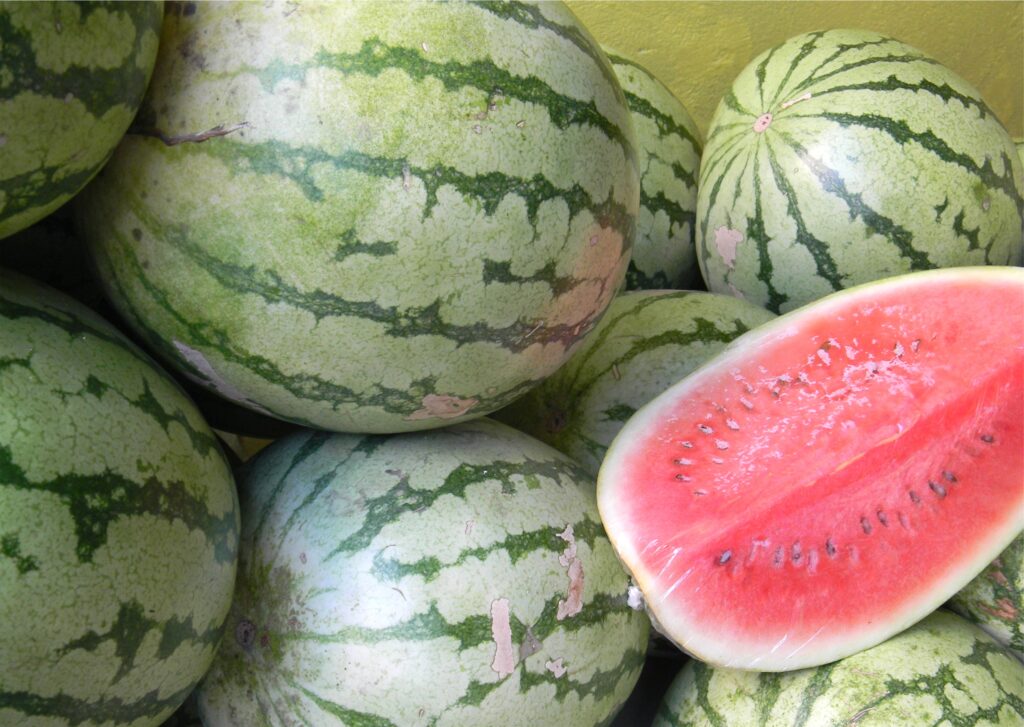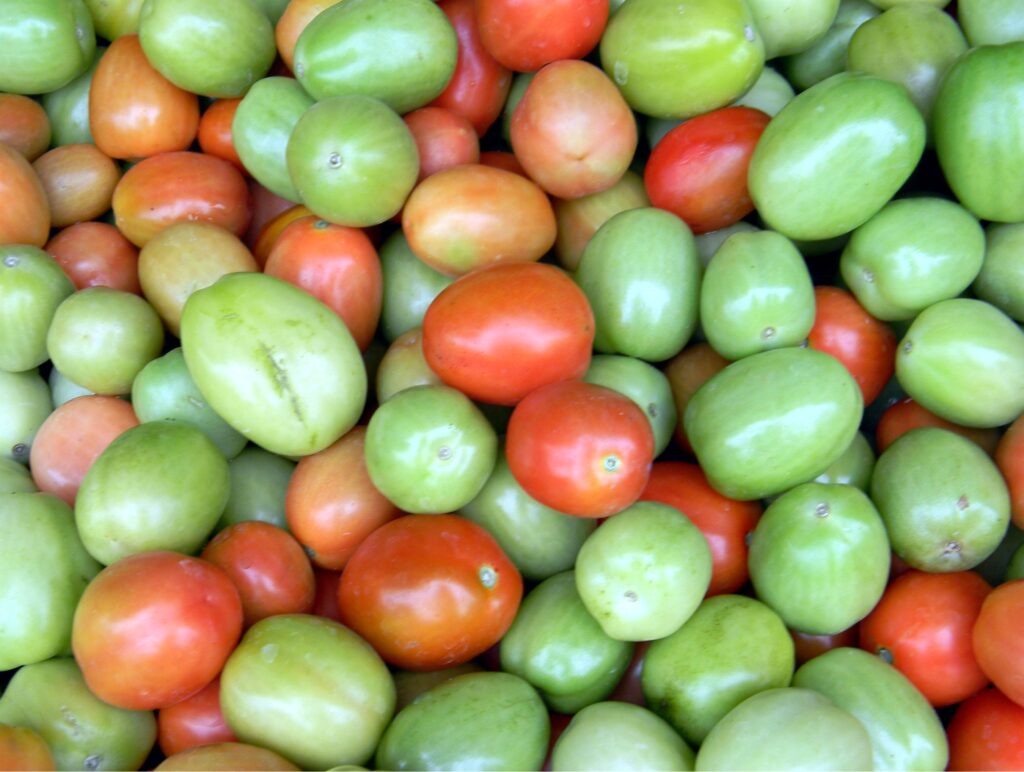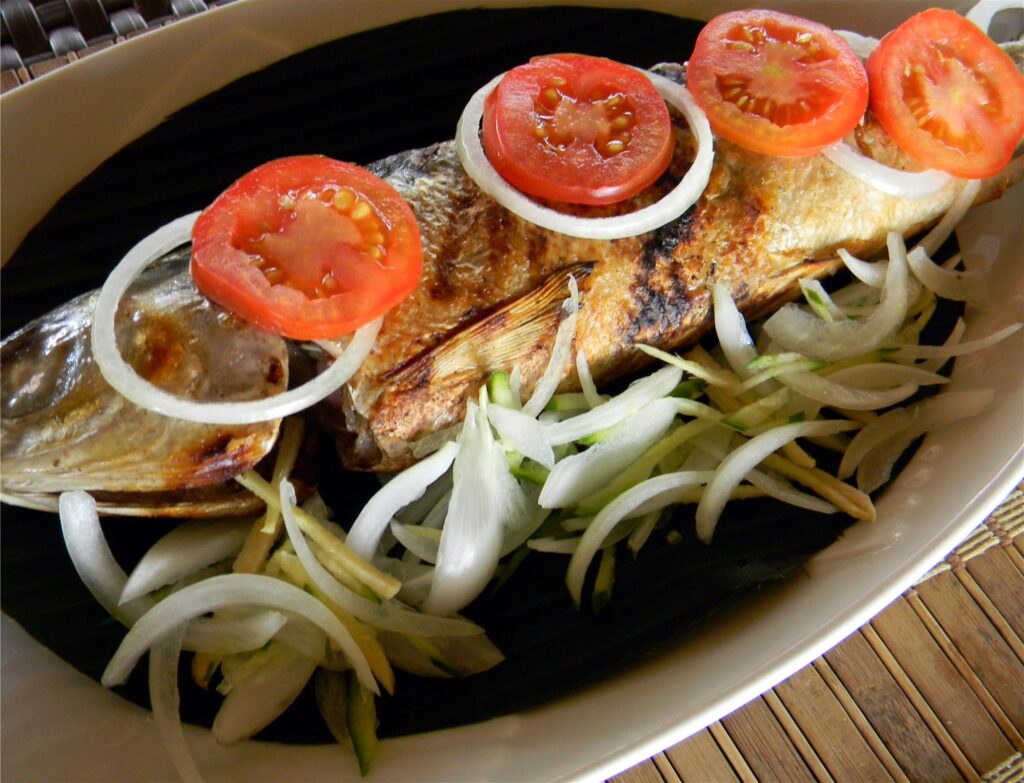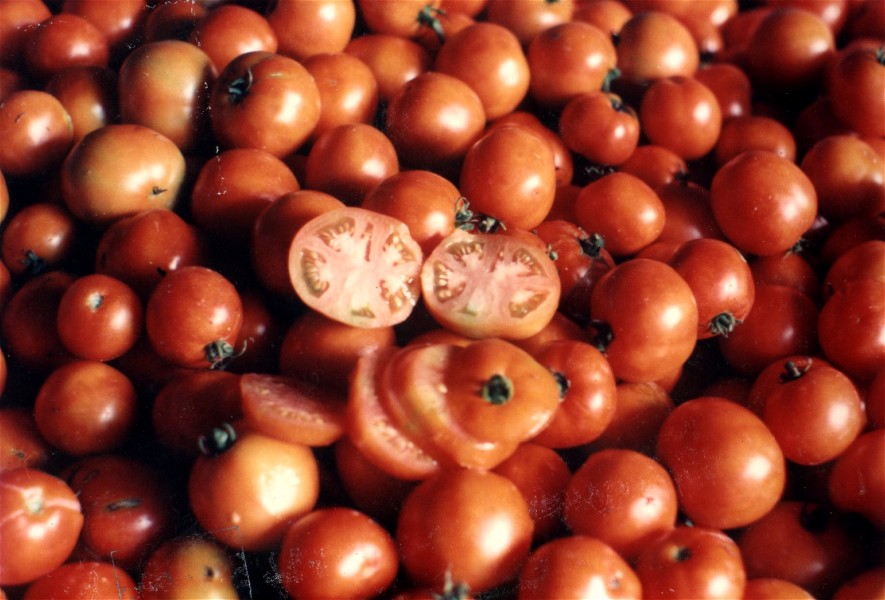Text and Photos by Henrylito D. Tacio
If you want to prevent stroke or reduce the risk of having a stroke, why don’t you eat tomatoes? That’s the recommendation of a Finnish study published in the journal Neurology.
The study provided more support for diets rich in fruits and vegetables. In tomatoes, the key factor appears to be the powerful carotenoid called lycopene. Carotenoid is a family of pigments that give fruits and vegetables their brilliant red, orange, and yellow coloring.
Lycopene is also a powerful antioxidant that eliminates dangerous free radicals that can damage DNA and other fragile cell structures. “The shape of the lycopene molecule makes it very effective in being able to quench free radicals,” Dr. Edward Giovannucci, a professor of nutrition, told Heidi Godman, executive editor of Harvard Health Letter. “We don’t really understand it entirely yet, but lycopene may have specific properties that protect the cell in a way other antioxidants may not.”
The Finnish research – based on data from more than 1,000 middle-aged men, followed for an average of 12 years – indicated that people with the highest levels of lycopene in their blood have a 55% lower chance of suffering a stroke.
“This study adds to the evidence that a diet high in fruits and vegetables is associated with a lower risk of stroke,” pointed out study author Jouni Karppi of the University of Eastern Finland in Kuopio.
Among the 258 men with the lowest levels of lycopene in their blood, nearly one in 10 had a stroke; the study found out. But among the 259 with the highest levels of the antioxidant, that number fell to around one in 25.
“The correlation between lycopene levels and stroke risk was even stronger when the researchers only included strokes due to blood clots, leaving out those caused by hemorrhages,” said the news dispatch, which reported the study.

Watermelon 
Lycopene-rich tomatoes
The participants with the highest levels of lycopene had a 59% lower risk of stroke from a blood clot than the men with the lowest levels of the antioxidant, the dispatch added. In total, 67 out of the men suffered strokes during the course of the study.
The finding came as a surprise – the researchers initially wanted to know if other antioxidants affected strokes, such as alpha-carotene, beta carotene, vitamin A, and vitamin E. But they didn’t find any link with the stroke risk.
The study is good news since the Stroke Society of the Philippines (SSP) reported that stroke is now the country’s second leading cause of death and first cause of morbidity. In a data released by the World Health Organization (WHO) in 2017, stroke deaths in the country reached 87,402 or 14.12% of total deaths. The age-adjusted death rate is 134.74 per 100,000 population, thus ranking the Philippines No. 29 in the world.
No one is spared from stroke – even famous personalities. Luke Perry passed away from a massive stroke at age 52. Bill Paxton suffered a stroke during heart surgery and died at age 63. At 51, film director John Singleton died due to complications from a stroke he suffered two weeks earlier. Princess Grace Kelly suffered a stroke and then crashed while driving with her daughter Stephanie.
Cary Grant was supposed to appear in a fund-raising event but didn’t make it as he suffered a stroke and died at the age of 82. A week after he suffered a stroke, author L. Ron Hubbard died at the age of 75. The three Allied powers leaders – Joseph Stalin, Winston Churchill, and Franklin Delano Roosevelt – died from a stroke.
In the United States, stroke is increasing among young adults. Researchers who conducted the study could only speculate on possible explanations. One might be that doctors are detecting strokes in young people more often – both as a result of better brain-imaging technology and of being more vigilant for stroke in the young.
“But I really don’t think that those are the major reasons,” lead researcher Dr. Brett M. Kissela of the University of Cincinnati College of Medicine was quoted as saying by Reuters. “We’re definitely seeing a higher incidence of risk factor for stroke now.”
Those risk factors include obesity, diabetes, and high blood pressure. “And if you’re developing them at the age of 20,” Dr. Kissela cautioned, “then you may have a stroke at a younger age, too.”
He advised everyone, regardless of age, to be aware of the potential symptoms of a stroke. These include severe headache, a sudden loss of coordination or balance, sudden numbness or weakness (especially on one side of the body), and trouble seeing, speaking or understanding.
A stroke is also called a brain attack. It happens when blood clots the flow of blood, and therefore oxygen, to the brain. If people get to the hospital quickly, doctors can treat them with clot-dissolving drugs that may be able to stop the stroke in progress.
To avoid having a stroke, some health professionals are recommending people to keep eating vegetables and fruits containing lycopene. Remember what Hippocrates, the father of medicine, once said: “Let thy medicine be thy food.” He made this statement thousands of years ago, and he must have lycopene-containing crops in his mind when he said those words.
“All natural foods with a rich pink to red color generally contain some lycopene,” wrote Alina Petre for healthline.com. Aside from tomatoes, the following also contain the most lycopene per 100 grams: guava (5.2 milligrams), watermelon (4.5 milligrams), papaya (1.8 milligrams), pink grapefruit (1.1 milligrams), and cooked sweet red peppers (0.5 milligrams).
Tomatoes are still the biggest source of lycopene, and the riper the tomato is, the more lycopene it contains. Per 100 grams, sun-dried tomatoes contain 45.9 milligrams. Tomato puree has 21.8 milligrams, while fresh tomatoes have 3.0 milligrams and canned tomatoes have a lesser amount: 2.7 milligrams.

Grilled bangus with tomato 
Ripe tomatoes
But it’s not only lycopene that makes tomatoes worth eating; it also contains several vitamins – particularly A, B, and C – which are good for your health. Vitamin A plays an important role in vision, fighting infection and bacteria, maintaining skin and body linings, bone and body growth, reproduction, and normal cell development.
The B vitamins are very important to maintain good health. A deficiency of vitamin B6 can raise a person’s risk of heart disease. Evidence also indicates that about 40% of heart attacks and strokes may be caused by a deficiency of folic acid, another important B vitamin.
Vitamin C is needed by the body to form collagen and fiber for teeth, bone, cartilage, connective tissue, skin, and capillary walls. It helps in fighting bacterial infections. It may also protect against declining mental ability and stroke. Vitamin C of tomatoes is not destroyed by heat, and therefore, they are practically valuable for all sorts of stomach and liver troubles.
“The lycopene-rich tomato, with its synergistic nutrients, is a powerful protector of heart disease. When the sauce is made in the traditional Italian fashion, with garlic, oregano, parsley and all the other spices, a tremendous amount of antioxidant, antithrombotic, and anti-inflammatory action is added,” a health expert wrote.
“There is currently no recommended daily intake of lycopene,” Petre wrote. “However, from current studies, intakes between 8-21 milligrams per day appear to be the most beneficial.”
Meanwhile, larger studies are still needed to confirm the findings and to figure out if the stroke protection is due to lycopene or healthy lifestyle habits. “Remember, a high lycopene consumer is likely to eat more vegetables and not be a smoker,” Dr. Giovannucci points out.
Now, are you ready for your tomato juice?

